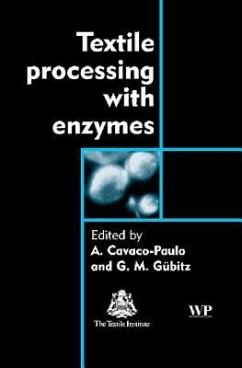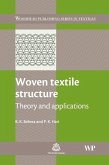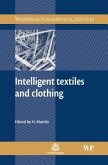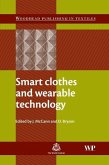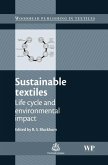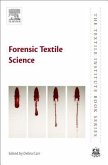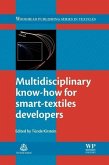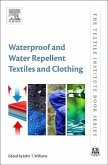With the increasingly important requirement for textile manufacturers to reduce pollution in textile production, the use of enzymes in the chemical processing of fibres and textiles is rapidly gaining wider recognition because of their non-toxic and eco-friendly characteristics. They can be safely used in a wide selection of textile processes such as de-sizing, scouring, bleaching, dyeing and finishing, where the alternatives are very harsh chemicals whose disposal into the environment causes many problems.
Textile processing with enzymes aims to provide the textile technologist with an understanding of enzymes and their use with textile materials and in process engineering. It covers all the relevant aspects of textile processing with enzymes, from the chemical constitution and properties of textile materials as potential substrates for enzymes, to the processing of these materials; from basic biochemistry and enzymology to the industrial application of these biocatalysts.
The introductory chapter contains an historic overview of the subject, followed by an overview of the fundamental aspects of enzymes determining catalytic properties. There is also a review of non-fibrous materials as substrates for enzymes. Chapter four covers catalysis and processing; providing an analysis of the function and application of enzymes used in textile processing. The fifth chapter offers important insights in process engineering and describes major problems of industrial applications of enzymes in textiles. Chapter six discusses practical aspects of handling with enzymes. Enzyme stabilities, operational and storage stabilities are discussed in detail along with health and safety issues. The final chapter deals with the potential of enzymes in textile effluent treatment.
It is a valuable resource for anyone interested in the use of enzymes in textiles including textile students, scientists and engineers with a background in textiles, biotechnology, chemistry and process engineering.
Textile processing with enzymes aims to provide the textile technologist with an understanding of enzymes and their use with textile materials and in process engineering. It covers all the relevant aspects of textile processing with enzymes, from the chemical constitution and properties of textile materials as potential substrates for enzymes, to the processing of these materials; from basic biochemistry and enzymology to the industrial application of these biocatalysts.
The introductory chapter contains an historic overview of the subject, followed by an overview of the fundamental aspects of enzymes determining catalytic properties. There is also a review of non-fibrous materials as substrates for enzymes. Chapter four covers catalysis and processing; providing an analysis of the function and application of enzymes used in textile processing. The fifth chapter offers important insights in process engineering and describes major problems of industrial applications of enzymes in textiles. Chapter six discusses practical aspects of handling with enzymes. Enzyme stabilities, operational and storage stabilities are discussed in detail along with health and safety issues. The final chapter deals with the potential of enzymes in textile effluent treatment.
It is a valuable resource for anyone interested in the use of enzymes in textiles including textile students, scientists and engineers with a background in textiles, biotechnology, chemistry and process engineering.

